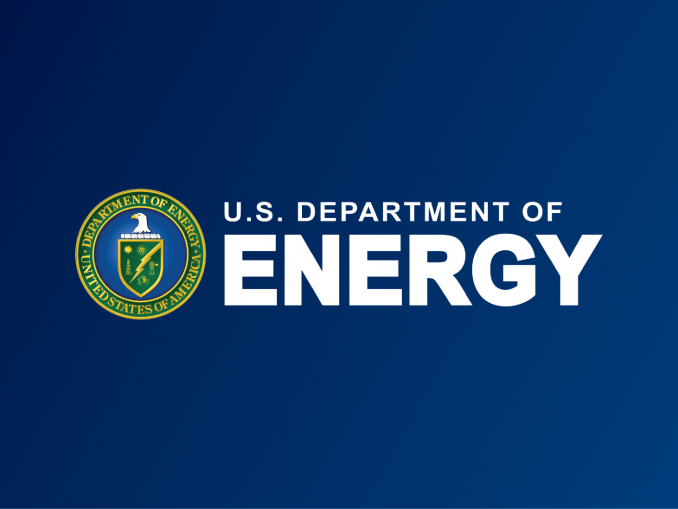
WASHINGTON, D.C. — The U.S. Department of Energy (DOE) today released three annual reports showing that wind power continues to be one of the fastest growing and lowest cost sources of electricity in America and is poised for rapid growth. According to the new reports, wind power accounted for 22% of new electricity capacity installed in the United States in 2022, second only to solar, representing $12 billion in capital investment, and employing more than 125,000 Americans. The reports found that transformative tax incentives in President Biden’s Investing in America agenda—a key pillar of Bidenomics—have led to significant increases in near-term wind deployment forecasts and are helping keep wind power prices competitive with other sources of energy like natural gas. Since taking office, President Biden has launched the most ambitious climate agenda in history, and wind energy both onshore and offshore will continue to play a significant role in achieving the Biden-Harris Administration’s unprecedented clean energy goals.
“As one of the cheapest energy sources nationwide, wind energy generates enough electricity to power more than 43 million homes and is creating good-paying jobs for the growing domestic wind energy workforce,” said U.S. Secretary of Energy Jennifer M. Granholm. “President Biden’s Investing in America agenda is expanding our nation’s domestic supply chain, increasing energy security, and growing the wind energy market to drive our clean energy future.”
Since the passage of President Biden’s historic Inflation Reduction Act, forecasts for land-based wind energy installed in 2026 have increased nearly 60% from about 11,500 megawatts (MW) to 18,000 MW, which is enough to power an additional two million homes. There have also been at least eleven announcements of manufacturing facilities that plan to open, re-open, or expand to serve the land-based wind industry. And the advanced manufacturing production tax credit in the Inflation Reduction Act is estimated to reduce the cost of offshore wind blades by 27% and steel towers by 18%.
The 2023 edition of the Land-Based Wind Market Report, prepared by DOE’s Lawrence Berkeley National Laboratory, details the 8,511 MW of new utility-scale land-based wind generation capacity added in 2022—the equivalent of powering 2.5 million American homes. Key findings from the report include:
- Wind energy provided 10% of total electricity nationwide, more than 60% of power in Iowa, and over 40% of power in South Dakota, Kansas, and Oklahoma.
- 14 states installed new utility-scale land-based wind turbines in 2022. Texas installed the most capacity, with 4,028 MW. Other leading states included Oklahoma and Nebraska, which each adding more than 600 MW of capacity in 2022.
- For the first time, non-utility buyers, such as corporations, are purchasing more wind than utilities. Direct retail purchasers of wind—including corporate commitments—buy electricity from at least 44% of the new wind capacity installed in 2022.
- Wind turbines continue to grow in size and power, contributing to competitive costs and prices. The average capacity of newly installed wind turbines grew 7% from 2021 to 2022, to 3.2 MW, while the hub height—distance from the ground to the middle of the turbine’s rotor—increased 4% from 2021 to 2022, to 98.1 meters, slightly taller than the Statute of Liberty. Taller wind turbines can create more electricity by benefitting from the better wind resources available further from the ground.
- For wind projects built in 2022, the estimated public health benefits, climate benefits, and value to the grid are worth more than five times the cost of generating electricity from wind energy.
In addition to growth in land-based wind, the Biden-Harris Administration’s historic actions to build a clean energy economy – a key pillar of Bidenomics – have also jumpstarted an American offshore wind industry that will create good-paying jobs, strengthen the nation’s energy security, make the power grid more reliable while lowering energy costs, and reduce dangerous climate pollution. The 2023 edition of the Offshore Wind Market Report, prepared by DOE’s National Renewable Energy Laboratory, shows continued progress toward the President’s goal of advancing offshore wind to promote good-paying domestic jobs and provide clean energy.
This report found that the capacity of U.S. offshore wind energy projects being developed and currently operating increased 15% from the previous year to 52,687 MW, which if fully developed would be enough to power over 18 million American homes. This includes two operating projects totaling 42 MW, 40 projects under development totaling 47,606 MW, and an additional 5,039 MW of potential capacity in the planning stage. The report also found:
- In 2022, the domestic offshore wind industry invested $2.7 billion in ports, vessels, supply chain, and transmission, indicating investor confidence in the U.S. offshore wind energy market.
- The Biden-Harris Administration expanded offshore wind planning beyond the north and mid-Atlantic, including five new lease areas auctioned off the coast of California – the first ever offshore wind lease sale on the Pacific Coast and the first to support commercial-scale floating offshore wind. There are also plans to auction three new wind energy areas for the first time in the Gulf of Mexico.
- New Jersey and New York combine for the highest energy capacity in the U.S. offshore wind energy pipeline, with more than 20,000 MW, followed by Massachusetts (8,189 MW), and California (6,102 MW).
- State policies across 13 states aim to procure 112,286 MW of offshore wind capacity by 2050.
- Major efforts are underway in New York, New Jersey, New England, and California to integrate offshore wind energy into long-term state grid planning.
The 2023 edition of the Distributed Wind Market Report, prepared by DOE’s Pacific Northwest National Laboratory, notes that 1,755 distributed wind turbines were added across 13 states in 2022. Distributed wind turbines, which serve on-site energy demand or support operation of local electricity distribution networks, total 29.5 MW of new capacity and represent $84 million in new investment in 2022. Key findings from the report include:
- Cumulative U.S. distributed wind capacity stands at 1,104 MW from over 90,000 wind turbines across all 50 states, the District of Columbia, Puerto Rico, the U.S. Virgin Islands, and Guam.
- Iowa, California, and Nebraska led the United States in distributed wind capacity additions in 2022, with two large-scale distributed wind projects in Iowa and one large project each in California and Nebraska.
- For small wind capacity additions, defined as turbines up to 100 kilowatts in size, Minnesota led the nation again in 2022. This is largely attributed to a continued push to sell small wind turbines to agricultural markets as a decarbonization solution.
The three market reports, including supporting blogs and infographics, are available at energy.gov/windreport.
Learn more about the Wind Energy Technologies Office in DOE’s Office of Energy Efficiency and Renewable Energy.













